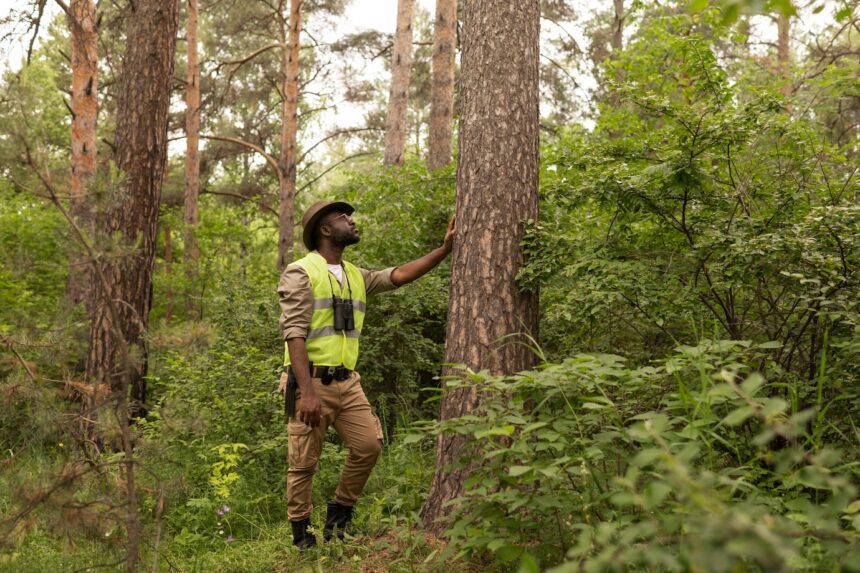Forestry in South Africa plays a significant role in sustainable management and has considerable economic potential. The country’s diverse forest resources contribute to various industries, including timber production, wood processing, and ecosystem services. Here are some key points regarding forestry in South Africa:
- Sustainable Forest Management: South Africa is committed to sustainable forest management practices, which involve maintaining the health and productivity of forest ecosystems while meeting the social, economic, and environmental needs of present and future generations. This approach focuses on balancing conservation and utilization of forest resources.
- Forest Types: South Africa has different forest types, including natural forests, commercial plantations, and indigenous forests. Natural forests are mainly found in the eastern and southern regions, while commercial plantations, consisting mainly of exotic tree species like pine and eucalyptus, are widespread throughout the country.
- Timber Production: The timber industry is a crucial component of South Africa’s forestry sector. Commercial plantations are established to produce timber for various applications, such as construction, furniture, and paper manufacturing. The industry follows sustainable harvesting practices to ensure long-term timber supply.
- Wood Processing and Value-Added Products: South Africa has a well-developed wood processing industry that adds value to the harvested timber. Wood is processed into various products, including sawn timber, poles, pulp, paper, and engineered wood products. These value-added products contribute to job creation and economic growth.
- Job Creation and Rural Development: Forestry activities provide employment opportunities, particularly in rural areas where the majority of plantations are located. The sector contributes to rural development by creating jobs in tree planting, harvesting, processing, and related industries.
- Biodiversity Conservation: South Africa’s natural forests and indigenous trees play a crucial role in conserving biodiversity. These forests support a wide range of plant and animal species, some of which are endemic or endangered. Sustainable forest management practices include protecting biodiversity and implementing conservation measures.
- Carbon Sequestration and Climate Change Mitigation: Forests play a vital role in mitigating climate change by sequestering carbon dioxide from the atmosphere. South Africa’s forests act as carbon sinks, absorbing and storing carbon emissions. Sustainable forestry practices help maintain and enhance this carbon sequestration capacity.
- Ecotourism and Recreation: South Africa’s forests offer opportunities for ecotourism and recreation. Nature reserves and protected areas provide visitors with opportunities for hiking, birdwatching, and enjoying the natural beauty of the forests. This contributes to local economies and promotes environmental awareness.
- Afforestation and Reforestation Initiatives: To expand forest cover and enhance the environmental benefits of forests, South Africa has implemented afforestation and reforestation initiatives. These efforts aim to rehabilitate degraded land, combat soil erosion, and enhance water resources while providing economic opportunities.
- Sustainable Development Goals: Forestry in South Africa aligns with several Sustainable Development Goals (SDGs) outlined by the United Nations. These include SDG 8 (Decent Work and Economic Growth), SDG 13 (Climate Action), SDG 15 (Life on Land), and SDG 17 (Partnerships for the Goals).
In conclusion, forestry in South Africa demonstrates a commitment to sustainable management practices, balancing economic growth, environmental conservation, and social development. The sector contributes significantly to the country’s economy through timber production, wood processing industries, job creation, and the provision of ecosystem services.
Join 'Farmers Mag' WhatsApp Channel
Get the latest Farming news and tips delivered straight to your WhatsApp
CLICK HERE TO JOIN






